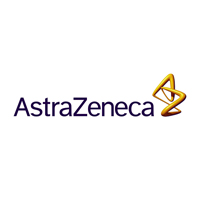AstraZeneca (LON:AZN) has today announced the US Food and Drug Administration has accepted a supplemental New Drug Application and granted Priority Review for Farxiga to reduce the risk of cardiovascular death or the worsening of heart failure in adults with heart failure with reduced ejection fraction with and without type-2 diabetes. Farxiga is a first-in-class, oral once-daily selective inhibitor of human sodium-glucose co-transporter 2.
The Prescription Drug User Fee Act date, the FDA action date for this supplemental application, is scheduled for the second quarter of 2020.
The sNDA was based on results from the landmark Phase III DAPA-HF trial published in September 2019 in The New England Journal of Medicine, which showed Farxiga on top of standard of care reduced the incidence of the composite outcome of CV death or the worsening of HF versus placebo.
Mene Pangalos, Executive Vice President, BioPharmaceuticals R&D, said: “Farxiga is well established in the treatment of type-2 diabetes and this Priority Review shows its potential to also impact millions of patients with heart failure. If approved, Farxiga will be the first and only medicine of its kind indicated to treat patients with heart failure.”
In September 2019, the FDA granted Fast Track designation for the development of Farxiga in HF. In August 2019, the FDA also granted Fast Track designation for the development of Farxiga to delay the progression of renal failure and prevent CV and renal death in patients with chronic kidney disease, with and without T2D.
Farxiga is indicated as a monotherapy and as part of combination therapies to improve glycaemic control in adults with T2D. In October 2019, the FDA also approved Farxiga to reduce the risk of hospitalisation for heart failure in patients with T2D and established cardiovascular disease or multiple CV risk factors.
Heart failure
Heart failure (HF) is a life-threatening disease in which the heart cannot pump enough blood around the body.1 It affects approximately 64 million people worldwide (at least half of which have a reduced ejection fraction) and is a chronic and degenerative disease where half of patients will die within five years of diagnosis.2,3,4 HF remains as fatal as some of the most common cancers in both men (prostate and bladder cancers) and women (breast cancers).5 It is the leading cause of hospitalisation for those over the age of 65 and represents a significant clinical and economic burden.6
DAPA-HF
DAPA-HF (Dapagliflozin And Prevention of Adverse-outcomes in Heart Failure) is an international, multi-centre, parallel-group, randomised, double-blinded trial in patients with heart failure and reduced ejection fraction (LVEF ≤ 40%), with and without T2D, designed to evaluate the effect of Farxiga 10mg, compared with placebo, given once daily in addition to standard of care. The primary composite endpoint was time to the first occurrence of a worsening heart failure event (hospitalisation or equivalent event; i.e. an urgent heart failure visit), or cardiovascular death.
Farxiga
Farxiga (dapagliflozin) is a first-in-class, oral once-daily SGLT2 inhibitor indicated as both monotherapy and as part of combination therapies to improve glycaemic control, with the additional benefits of weight loss and blood-pressure reduction, as an adjunct to diet and exercise in adults with T2D. Farxiga has a robust programme of clinical trials that includes more than 35 completed and ongoing Phase IIb/III trials in more than 35,000 patients, as well as more than 2.5 million patient-years’ experience.
AstraZeneca in CVRM
Cardiovascular, Renal and Metabolism (CVRM) together forms one of AstraZeneca’s three therapy areas and is a key growth driver for the Company. By following the science to understand more clearly the underlying links between the heart, kidneys and pancreas, AstraZeneca is investing in a portfolio of medicines to protect organs and improve outcomes by slowing disease progression, reducing risks and tackling comorbidities. The Company’s ambition is to modify or halt the natural course of CVRM diseases and potentially regenerate organs and restore function, by continuing to deliver transformative science that improves treatment practices and cardiovascular health for millions of patients worldwide.








































